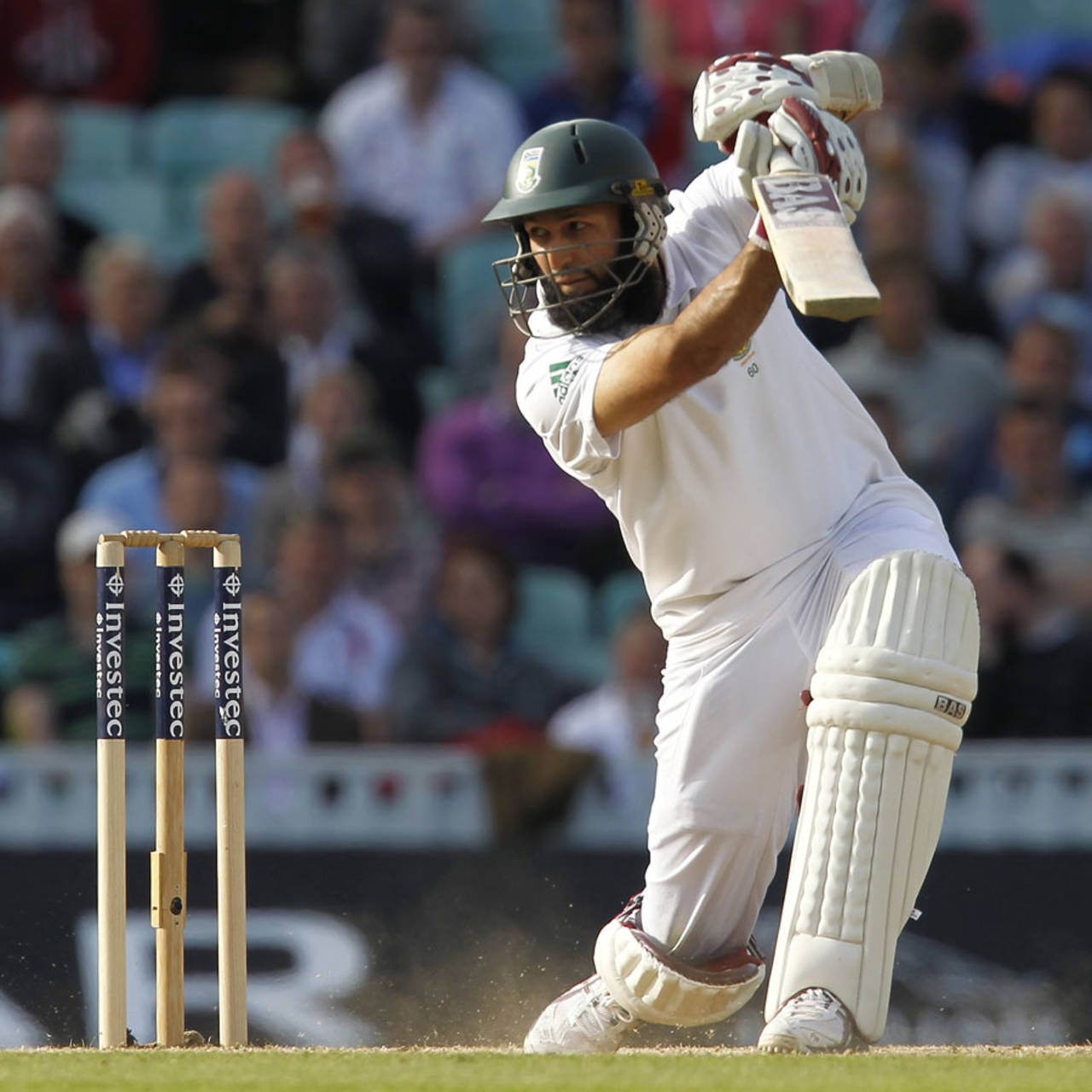The misleading aura surrounding Wisden's five
The most anticipated annual award in cricket is just like any other - chosen by people with personal preferences and prejudices
Samir Chopra
14-May-2013

Hashim Amla: one of Wisden's five cricketers of the year • AFP
Last year, as the annual Academy Awards ceremony rolled around, attended to by all the usual hype, I wrote a post at my personal blog in which I attempted to describe the origins of my disillusionment with the Oscars - because I had previously imagined them to be awarded by some extraterrestrial jury - and the opportunity it provided for understanding that human reckonings of human achievement were just that, human. In that post I described finding out how the Oscars were merely the result of voting by a very particular panel of movie-goers, the Motion Picture Academy of America:
When I reached this point in my reading, I remember being stunned: Wait, that's ALL the Oscars were? Just the result of voting by some Academy? Made up of humans voting their preferences? Why was that so special? Couldn't they just vote for their favorite movies? I knew somehow, dimly, that human beings often differed in their utility allocations; schoolyard rumbles had at least taught me that much. Somehow, I had imagined that the Oscars resulted from a non-earthly assessment of cinematic quality, that their awards were free of the taint of human subjectivity and bias.
I'm reminded of this story whenever I witness the annual hype surrounding Wisden's Five Cricketers of the Year. Every year, when the Famous Five are announced, some cricket fans find out to their dismay that the Yellow Book has not deigned to recognise the achievements of their personal favourites; their dismay is only partially tempered when they find out that it is because these feats took place far away from English shores. Wisden's list is still a Big Deal™.
As a child, I too, waited eagerly for these announcements: Who would Wisden anoint this year? Who would it select for its pantheon of cricketing grace? Who, dear God, who? I was sometimes puzzled by the inclusions on the list, but I accepted them nonetheless. Who was I to argue with Wisden? And then, like the story above, I had my moment of enlightenment: my father let slip one day that Wisden's list only recognised performances in the English season. It would not matter if an Australian scored 2000 runs in his season; it would not matter if an Indian took 100 wickets in his; if it didn't happen in England, it didn't happen for Wisden. I remember being stunned on hearing this qualification: this was Wisden, the supposed impartial arbiter of global cricketing excellence, stately and above human parochialism, and all its list did was recognise achievements in the English summer? Even to my highly pliable Indian middle-class Anglophone mind, something about this seemed far more modest, far more circumscribed than the lofty promises of the original Five of the Year's Best.
To be fair to Wisden's list, it wore its parochialism lightly on its sleeve; it never pretended to be doing anything more than picking five local performers; its air of esteemed judgement and cosmopolitanism was derived almost entirely from the fact that the English summer always had tourists, from the usual underwritten premise that England was the centre of cricketing achievement, and thus consequently, its writings on the game would constitute the heart of the information order of the world of cricket, and thus finally, because the rest of the cricketing world was only to eager too grant Wisden's list the aura of Final Distinguished Discernment.
But it is worth remembering what Wisden is: a periodical, manned and staffed by cricket fans like us, each one of them bringing a background of national cricketing history, particular acculturations, and personal preferences, to their understanding of the game, to their reckonings of cricketing excellence. Every year, some of them, armed with statistics and their own judgement, sit down to pick out five cricketers from among the hundreds who perform on the English stage. Elsewhere in the world, thousands of other cricketers do the best they can. Their feats are written about, commented on, observed, praised, and censured by many other cricket fans, many of them as knowledgeable and passionate and perceptive as those that compose Wisden's assessments of excellence.
We might find, if we are prepared to listen, that their lists are just as good, just as worthy of attention and analysis.
Samir Chopra lives in Brooklyn and teaches Philosophy at the City University of New York. He tweets here